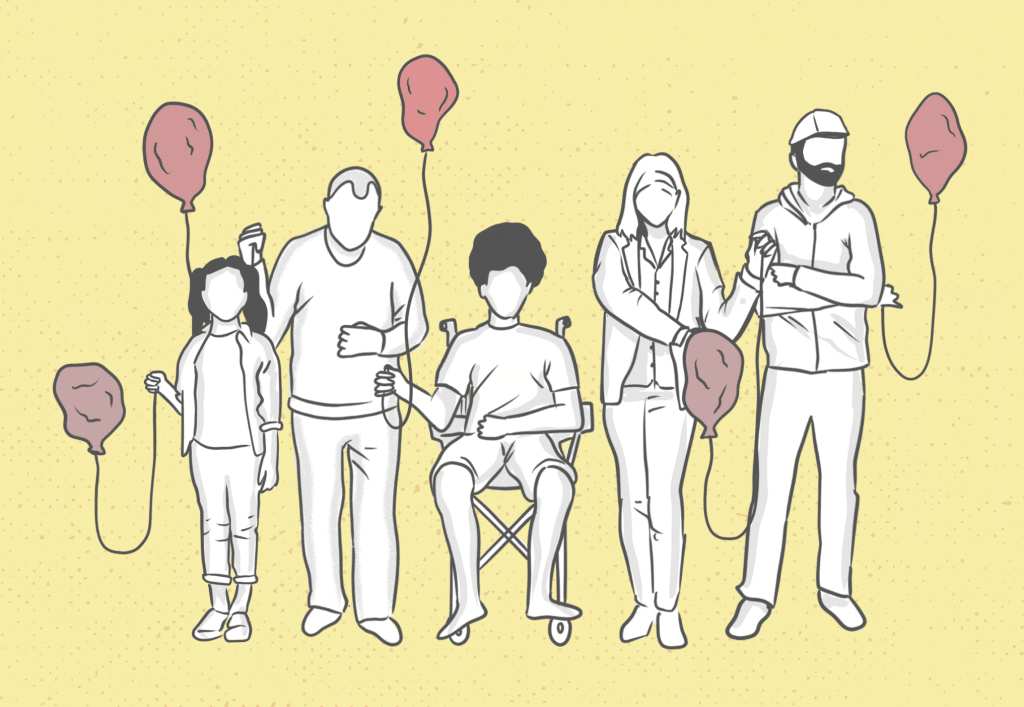This year’s theme for Mental Health Awareness Week is loneliness. Running from 9th to 15th May we are all being asked to consider the impact loneliness plays on our own and other’s physical and mental health.
As we are all too aware social isolation has been compounded by the pandemic. We were told to keep away from others and reduce physical contact to a minimum. Working from home, school closures, and the suspension of public gatherings have made the likelihood of loneliness increase exponentially. This has resulted in a significant number of people experiencing negative impacts on their physical and psychological wellbeing.
Loneliness is different than being on your own. It is common for people to enjoy time spent in their own company. But the problems occur when we have an absence of desirable relationships. Many people have had times in their life when they have felt lonely. Having positive relationships involves someone who we feel comfortable with simply because they understand who we are and accept us warts and all.
Think of any significant experience in our lives, whether it be positive or negative, sharing that experience with others makes the positive things better and the negative experiences easier to overcome. Going on a wonderful holiday, achieving a difficult task, or feeling outraged loses its meaning when we have no one to share those experiences or emotions with. Human consciousness exists primarily in relation to other people. We are a social animal who experiences the world through our relationships with other people.
Research into what makes us happy was carried out by Harvard University. The study began in 1938 and followed over 700 people. ‘The study explored every part of who we are, from physical and psychological traits to social life and IQ, to learn how we can flourish. Findings from the study were published in the 2012 book Triumphs of Experience, with key results showing that happiness and health aren’t a result of wealth, fame, or working hard, but come instead from our relationships’ (Mental Health Foundation 2016, p.4).
Important findings include:
- Social connections are good for us, and loneliness kills. People who are more socially connected to family, friends, or community, are happier, physically healthier, and live longer than people who are less well connected.
- It’s not just the number of friends you have, and it’s not whether you’re in a committed relationship or not, but it’s the quality of your close relationships that matters. Living in conflict or within a toxic relationship is more damaging than being alone.
- Good relationships don’t just protect our bodies; they protect our brains. Good quality relationships were related to sharper memory.
(Vaillant et al, 2012, cited in Mental Health Foundation, 2016, p.4)
I think anyone who has experienced loneliness will agree that feeling that way can sap our energy and leave us devoid of the spark that brings joy to our hearts. Below we have listed just a few things that can help us feel less lonely and add buoyancy to our souls.
How can we help ourselves and others feel less lonely?
At work
- Adopt a humanistic approach to work relationships. Remember we are all people first and workers second.
- Develop ethical standards that are developed, shared, and owned by the group whom the standards are meant to guide and support.
- Think of ways, or ask the team, how we can create workplaces and work practices that foster positive and meaningful relationships.
- Think about how we bring on board new members of a team. Remember the new people don’t know the in-jokes, abbreviations, or nuances that underpin the way established teams work together.
- Create a culture where people feel they can develop a workable work-life balance. If we don’t have the time or the energy to form and/or maintain positive relationships outside of work the chance of them occurring is greatly reduced.
- At Ouch, our midday mile enables our team to get away from their desks, socialise with their work friends and form positive relationships with the local community.
Personal strategies
- Ensure you make the effort to stay in touch with friends and family.
- Join a group of like-minded people and perhaps learn a new hobby at the same time.
- Think about how we can support others. Making the time to reach out, check-in, and taking the time to listen, share, and acknowledge important issues is a brilliant way of motivating ourselves to form meaningful relationships.
This year’s Mental Health Awareness theme really struck a chord amongst the Ouch team, with everyone recognising how awful loneliness can be. For Mental Health Awareness Week, we always try and add to the wide range of resources from an Ouch perspective. Whilst we were chatting about what we could do for this year’s theme, one of the team described their experience of loneliness as feeling an underlying sadness and deflation. We were taken by an image of a deflated balloon, it just seemed to evoke the feelings of sadness felt when one feels lonely. And so, we decided to commission a young local artist to create 6 posters to highlight how ‘anyone can feel deflated by loneliness’.
If anyone would like PDF copies of the posters as part of your organisation’s promotion of Mental Health Awareness Week 2022, please get in touch and we will send them over.
If you would like to hear about how Ouch can help you develop workplace strategies that reduce the likelihood of loneliness, please get in touch. We’re here to help.
01202 880999
Useful resources/References
HM Government (2018) ‘A connected society: A strategy for tackling loneliness’. Online, Available at https://shorturl.at/quvDY (Accessed 21 March 2022).
Mental Health Foundation (2016) Relationships in the 21st Century. London: Mental Health Foundation. Online, available at https://www.mentalhealth.org.uk/sites/default/files/Relationships-in-21st-century-forgotten-foundation-mental-health-wellbeing-full-may-2016.pdf (Accessed 01 March 2022).
